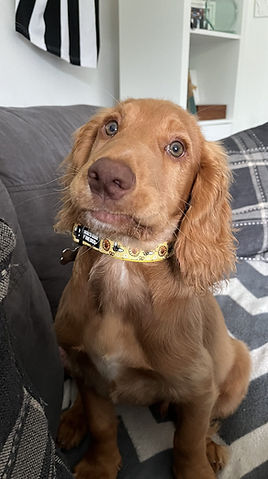I've never had therapy like this before!


The Proof is in the Pudding: What Clients Actually Say
This is the feedback I receive from my clients time and again —both in private practice and in my salaried role. In my private practice, I've got more of a free rein to do therapy my way, naturally. However, I do bring elements of it into my salaried role as well, because why wouldn't you use what actually works?
Here's the thing - I can be just as effective in 4-6 sessions as I can be long-term. Not because I'm rushing anyone through, but because we get to the heart of things quickly and without all the faff.
So, what's different then?
Brilliant question, and I'm rather glad you asked...
The difference isn't in some magical technique I've invented or a secret formula I've discovered. It's in showing up as a real human being who happens to be professionally trained, rather than a professionally trained person pretending to be robotic. It's in those squirrel moments, the authentic reactions, the ability to call out what's actually happening in the room without wrapping it in therapeutic cotton wool. It's therapy that feels more like a proper conversation with someone who genuinely gets it - because that's exactly what it is.
Hear Me Out... What If Therapy Was Just a Proper Conversation?
What if therapy is simply a conversation where you leave it up to me to bring together a whole host of therapy models tailored to what you bring on the day? How about we ditch the expectations, bin the rigid structure, and go with the flow?
Why do I say this?
When I start banging on about what models I'm using, people get hung up on either previous experiences of therapy, or they've googled it and already have opinions, or they've switched off completely towards what it does. Believe me, been there, done that. I've run rings around my previous therapists (yes, I do therapy for myself too). I've been both the client and the counsellor. I know what it takes to be vulnerable, to have had both brilliant and bloody awful therapists. Not their fault - they (and I at the time) didn't know they were working with the squirrel mind.
I also find that if I start spouting off about CBT (yes, I do some elements of this, but this isn't your standard approach, NLP, polyvagal theory, or mindfulness, you're going to tell me where to go. However, if I talk about you being able to have mindfulness that doesn't include staying still and saying "Ommm" - well, that's different. I'd rather talk to you, allow you to tell your story for once, from your perspective, and then use that to help tailor communication approaches, perspective changes, and letting go of the people-pleasing behaviours. I want you to be seen and heard.
The Real Talk About Neurodivergent Life:
I was diagnosed as depressed, socially anxious, etc. Nope, I'm bloody not. I just see through the bull - I'm hyper-aware of the smiling assassins! You smile at my face, yet your body language and tone are off. Sound familiar? We're constantly told we're the issue: "Try to be more social," "Why are you so awkward?" "Why do you talk so fast?" "Wow, you're so over the top." "Why are you so quiet?" It's absolutely exhausting. I get it - that's why I don't just do counselling. I work with you to learn how to ask others to make accommodations, how to ask for your needs to be met, and then how to tell people to sod off (joking, please don't actually do that).
Honestly, though, I want you to feel human. I want you to understand that yes, our definition of happiness, joy, and excitement may just look like we still have a resting bitch face. I don't express joy like others—I may even look like Eeyore. My version of happiness may even look like I'm really upset. So what? Neurodivergent people often describe themselves as "numb but okay," and that's perfectly valid, too.
The point is that you don't need to express emotions in the "right" way. You need to be authentically you.




Therapy That Actually Feels Like Freedom:
Therapy can and absolutely should be fun. Just because we're dealing with some proper heavy stuff doesn't mean I won't laugh at your sarcasm or appreciate your brilliantly dark sense of humour. Therapy with me is about authenticity - unmasking, being vulnerable, and never having to apologise for what you say or how you say it.
There's something incredibly freeing and empowering about speaking to another neurodivergent person. There's no need to script conversations or practise what you're going to say or how you're going to say it beforehand. You can just... be.
Look, therapy is exhausting enough without me trying to contain what you're trying to convey. Why would I want to put you in yet another box when the whole point is helping you break out of them?
When you walk into my space, you're not performing for anyone. You're not editing yourself or watching your language. You're just having a proper conversation with someone who genuinely gets it - the stimming, the tangents, the way your brain works, all of it.
That's where the real breakthrough happens - when you stop expending energy on being "appropriate" and start using it to actually heal.